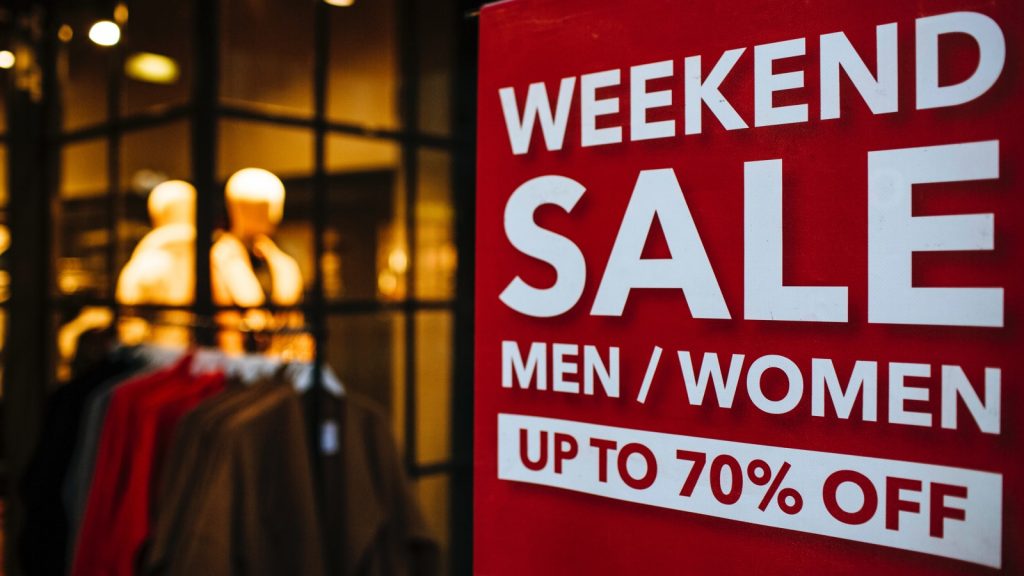Black Friday 2021 is arriving on 26 November, so you’ll no doubt be inundated with promotions, deals, and sales. But how do you know that you’re actually getting a good deal?
Black Friday is a primarily American ‘holiday’, since it’s linked to the country’s celebration of Thanksgiving. But that hasn’t stopped other countries around the world from adopting the sales period, expanding it throughout the month.
No ad to show here.
But this means retailers have also adopted the dodgy sales tactics used during this period. South African retailers have repeatedly been called out by consumers on social media for suspected consumer manipulation.
This includes raising original prices before November and then discounting them during Black Friday — with the discount bringing a product back to its normal price.
Then there’s the tactic of inflating the so-called “retail price” to make a discount on the site seem bigger than it is.
Meanwhile, scammers also use Black Friday as a lure for shoppers.
Here are a few tips and online tools to make sure you don’t get tricked by phoney deals this Black Friday…
1. Check the price history of a product
Seeing the price history of a product can let you know if a retailer has raised the original price before Black Friday.
Unfortunately, there aren’t that many resources for local websites, with most price history tools focused on international websites.
However, a local tool called Serval Tracker can help you take a look at the price history of products on Takealot. Creator Ashton Hudson developed the tool as a side project and occasionally submits bug fixes and features.
You can paste a Takealot URL or Product ID to see its price history on the site. The summary will include both a graph of the list price and current price. You can hover over the graph to see specific details.
We recommend hovering over the graph to see the exact figures.
Meanwhile, if you’re shipping internationally from Amazon, you can use CamelCamelCamel.
The site lets you track the list price, as well as the average price of a product. You can paste the URL of a product to see its history.
2. Use Google Shopping to compare prices across sites on Black Friday
Sites frequently compare their discount to a “retail price”, but don’t always specify where this price comes from.
This sometimes results in inflated prices that are higher than the actual supplier’s list price. This makes the discount seem bigger than it is.
But it can also trick customers into spending more on a product than they normally would due to the effect of anchoring bias. It’s the same psychological trick used in infomercials.
If you think something usually costs R10 000, suddenly R5 000 seems like a really good price. But had you seen the R5 000 by itself, you may have thought the product wasn’t worth even that.
To make sure that a site isn’t inflating its prices, or that there aren’t better deals elsewhere, you can use Google Shopping. The feature is a tab built into the Google Search website.
Simply search for a product and then switch to the Shopping tab.
Switching to the tab will show you the product at other retailers, as well as similar products.
When you click on a listing, Google will give you a summary of reviews, retailers with the product, product details, and delivery details.
The price that Google shows already reflects discounts. You can click through on the retailer listings to view the product page. Check that it’s the right model you want. The product page will also show you discrepancies in listing prices between retailers as you explore different listings.
You can also keep scrolling through the Google Shopping page to see alternative products and use various filters to refine your search.
3. Keep to sites you know
While it’s tempting to gravitate towards the lowest price, there are also many untrustworthy retailers that try to cash in on the Black Friday hype.
The rush around the shopping holiday already results in delays and mixups. It’s not the best time to try a retailer that you’ve never heard of.
And be wary of promotions and ads that appear in your inbox or on your browser.
We recommend sticking to sites you’ve used or sites that people you know have good experiences with. Make sure that they have secure payment methods in place too.
Read more: How to get your digital COVID-19 vaccine certificate
Feature image: Markus Spiske/Unsplash
